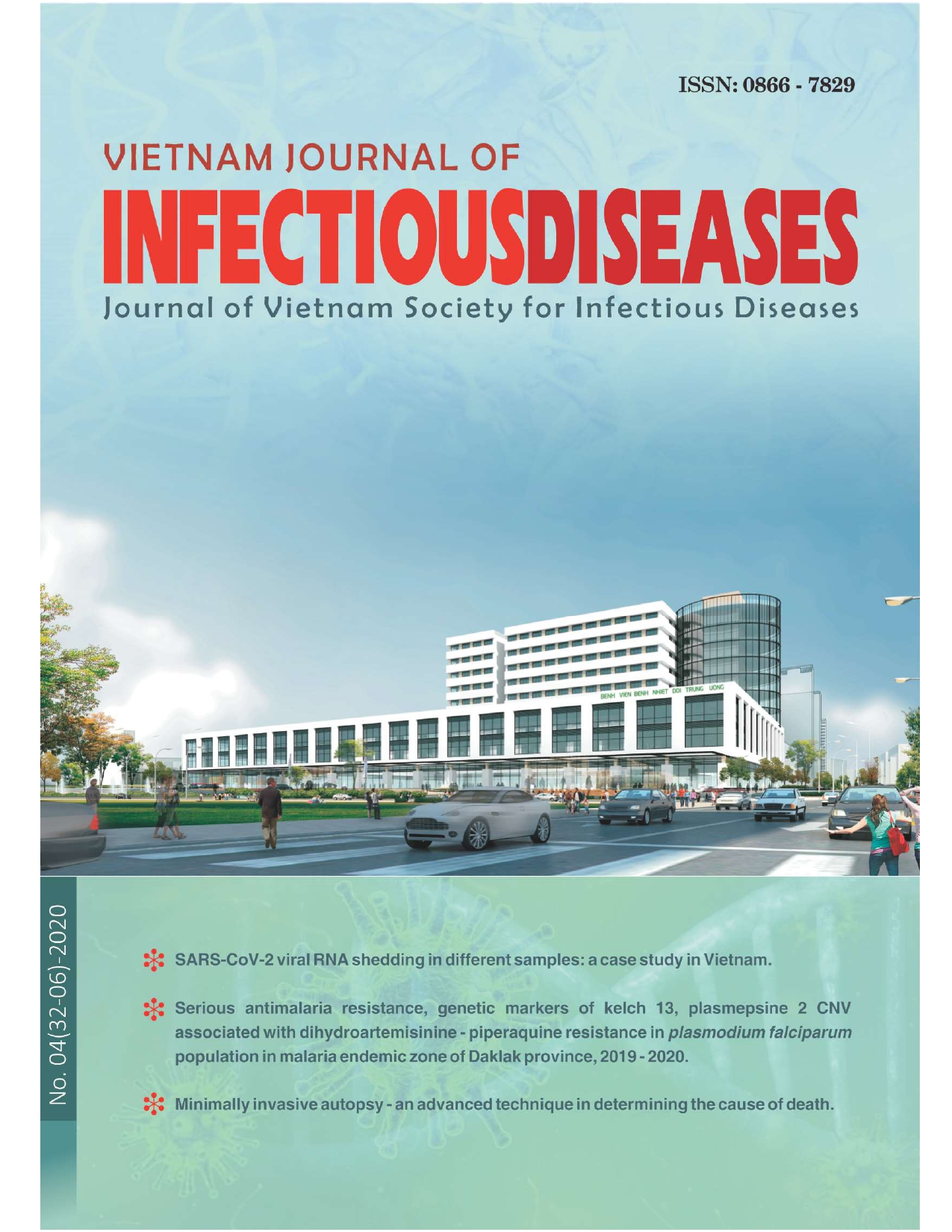SERIOUS ANTIMALARIA RESISTANCE, GENETIC MARKERS OF KELCH 13, PLASMEPSINE 2 CNV ASSOCIATED WITH DIHYDROARTEMISININE - PIPERAQUINE RESISTANCE IN Plasmodium falciparum POPULATION IN MALARIA ENDEMIC ZONE OF DAKLAK PROVINCE, 2019 - 2020
Main Article Content
Abstract
Backgrounds: Dihydroartemisinin - piperaquine is a current frontline drug recommended in global by WHO for the treatment of Plasmodium falciparum malaria (WHO, 2015), but is now failing in Vietnam provinces where border Cambodia, and has emerged and spread. The purpose of this study was to evaluate efficacy and molecular markers of dihydroartemisinin - piperaquine failures in Daklak province.
Methods: A study design of non - randomized controlled study design for the 42 day - course follow - up in vivo test, and the molecular markers analysis.
Findings: The data showed that adequate clinical and parasitological response was sharply declined of 12,1%, late clinical failure of 51.5%, late parasitological failure of 36.4%, proportion of positive parasitemia at D3 is 37%, slope half - life of 5.36 hrs, and progressive parasite clearance PC50, PC75, PC 90, PC95, and PC99 were 13.24; 19.29; 25.69; 29.97 and 39.15 hrs, respectively. Molecular markers of C580Y Kelch mutation observed 100% (50/50) in the patients, increased of Plasmepsine 2 CNV of 72% (36/50), and both K13 and Plasmepsine 2 of 72% (36/50).
Conclusions: The DHA - PPQ efficacy severely decreased of 12.1%, overall treatment failure of 87.9% with the prominent C580Y mutant plus increased Plasmepsine 2 copy number variation in delayed asexual P. falciparum parasite clearance. These obvious data need to urgently change antimalarial policy in DHA - PPQ resistance zones.
Article Details
Keywords
Plasmodium falciparum, K13 propeller, Plasmepsine 2 copy number variation (CNV)


